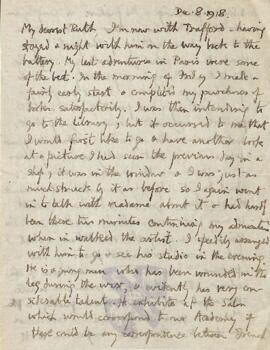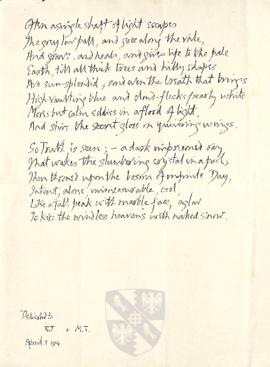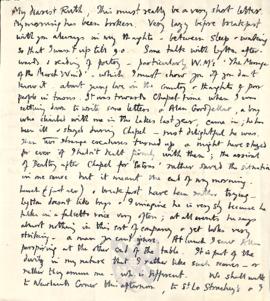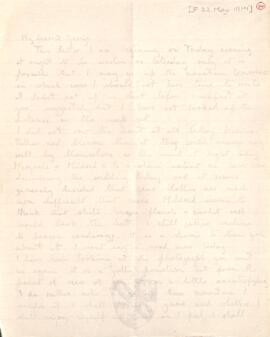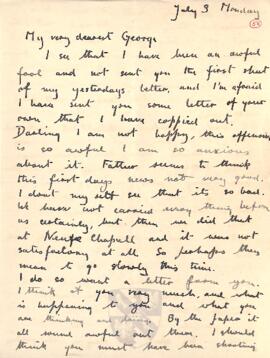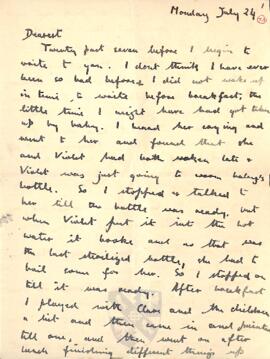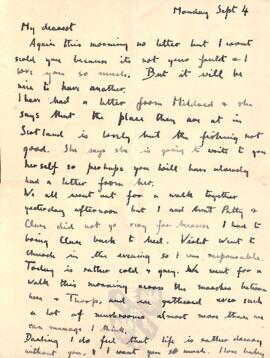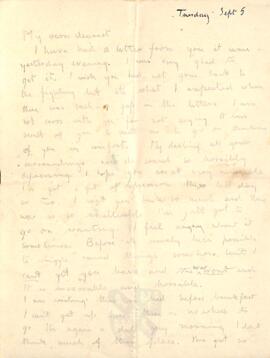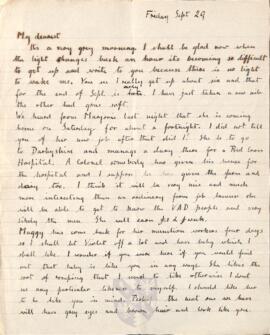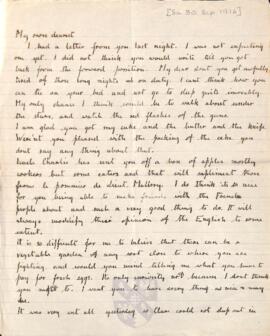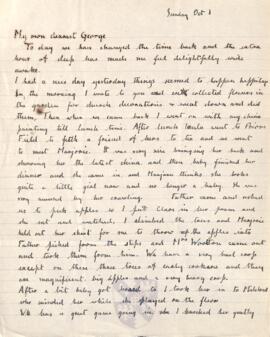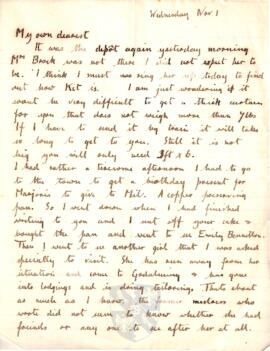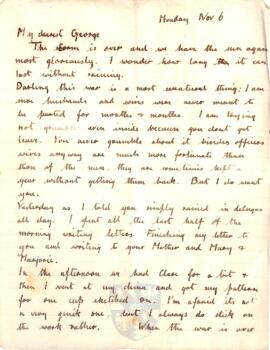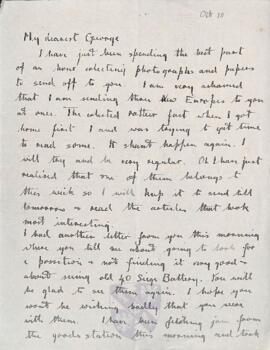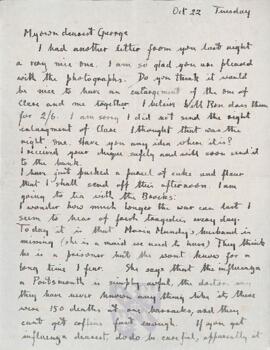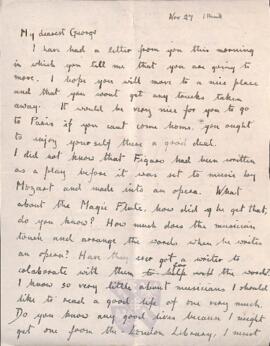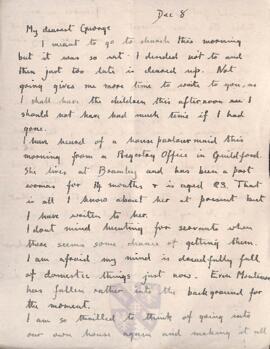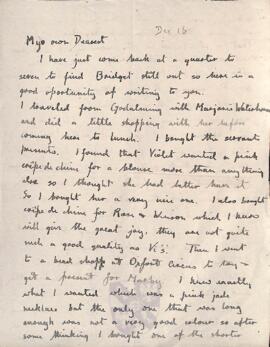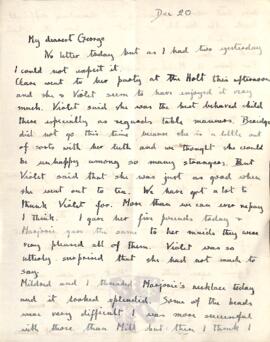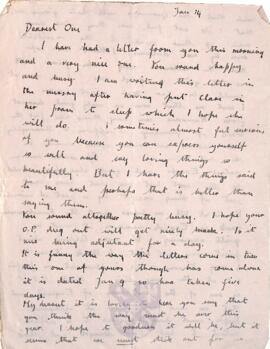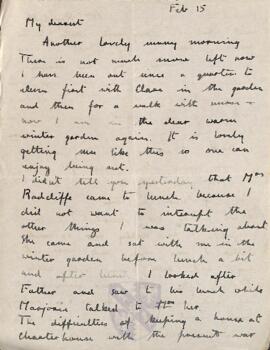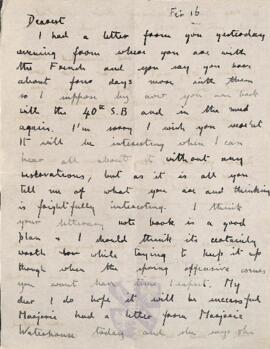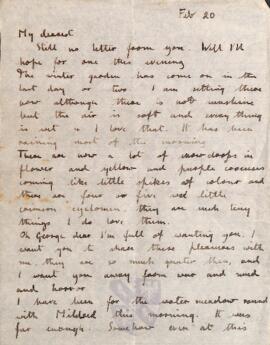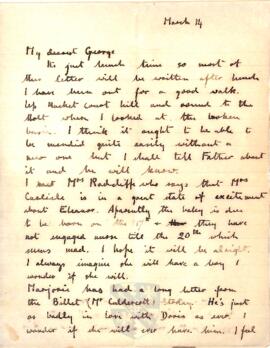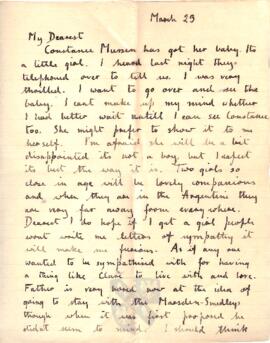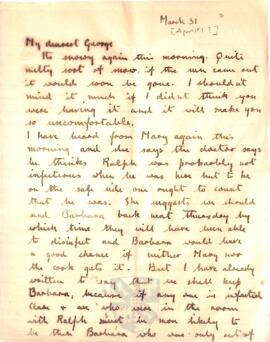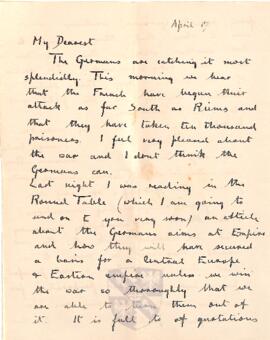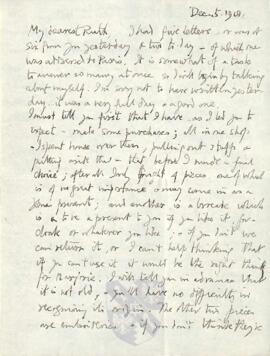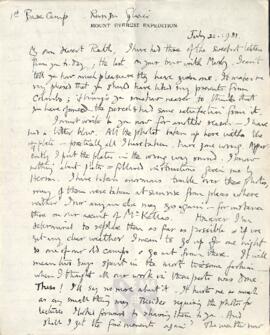Letter to Ruth Mallory, written from 1st Base Camp, Rongbuk Glacier on ‘Mount Everest Expedition’ Letterhead
Brief Summary
Was disappointed that all the photographs he had taken had not come out. Will go back to their old camps to re take them. Longs for home. Liked walking round camp collecting flowers. Had been having bad weather. Had enjoyed beautiful views from their highest camp. Had called one of the mountains 'Mount Clare' after their daughter. Describes their explorations and other members of the group.
Detailed Summary
Had received three of her letters and was pleased she liked his parcel from Colombo. All the photographs he had with the ¼ plate had not come out [He had put the plates in the wrong way round and blamed instructions given to him by Heron]. He had taken enormous trouble setting up the photographs, many of them were taken at sunrise from places neither he nor anyone else may go again. Was determined to go back to one of their old camps so he could replace the photographs. He had hoped to show them on a future lecture tour and to her. The weather was bad, but they were much more comfortable in their eighty-pound tent.
He was sorry he hadn't been sharing enough of his feelings with her [in her letter Ruth had asked him to share more] but he had been occupied with what they had to do. He longed for home but remained cheerful even though the moments of real enjoyment were rare. He liked walking round camp collecting flowers but the bad weather stopped him. They had to stay in the tents due to the bad weather and he played piquet with Bullock to pass the time.
He had greatly enjoyed their highest camp the night before their attempt on the W. cwm because of the beautiful views. One mountain in particular was singularly lovely and he called it Mount Clare [the name of his eldest daughter. Mount Clare is now called Pumori, meaning 'mountain daughter']. They had done very little climbing and it was a slow and tiresome business crossing the glacier.
The mountains were rather unfriendly compared to the scenery of the Alps. They hadn't seen a tree in Tibet!
Comments on the contents of her letters.
28 July - Woke up to snow on the ground at Base Camp and the weather clearing. He lead a march with six porters and two mummery tents going up about 3,000 ft from Base Camp. Then raced down to join Bullock half an hour short of 2nd Advanced Camp. Passed a comfortable night, though it was freezing. His alarm clock failed to go off, and later they set out in the moonlight, Bullock with two porters up into the N. cwm and him with two others to the little peak. There was a blanket of cloud a few hundred feet above their heads but they went on and he was able to get a clear view for about 30 seconds of Mount Clare [Pumori]. He was able to take ten photographs, and some of Everest, predicting they would turn out well. He had photographed the West Peak feeling that he had repaired a good detail of the damage [referencing his earlier photography mishaps].
Changing weather and thunderstorms had made them abandon their plan due to thick snow. He and Bullock were later reunited with Howard-Bury’s party. Wheeler arrived later the same evening after making his photographic surveys to the west. Wheeler had been doing much of what they had done but alone. It was rather silly that they couldn’t have joined forces. After three days trekking they had arrived at Kharta and the new Expedition Base Camp. He describes the changing scenery, coming down to Cholo.
They were nearer to the Arun Valley and had crossed two passes and were sleeping near clear bubbling streams. Seeing the snow mountains had been full of interest but to see things grow again had been a real joy. Describes a sweet mountain valley and the flowers saying he might have been in the Highlands. Describes camping and being delighted by a particular flower that especially reminding him of her. They were in the Arun Valley before it went down into a narrow and fearsome gorge to Nepal and India. He planned four days’ rest.
31 July - Mail had arrived and he was busy printing photographs which were more successful. He was enjoying the quiet days but at the same time was looking forward to the next stage of their reconnaissance. They planned to follow a big glacier stream which he presumed came from Everest. The great question was the approach to the North col and feasible line of attack. He hoped to find it easier.
He hoped some of the others would join them as it had been disappointing to see so little of Wollaston and Morshead. Shares his current feelings towards Bullock. Refers to poor Wollaston and Raeburn’s absence for medical reasons and that they had no further news about him.
[Postscript] - he enclosed a few earlier photos.
